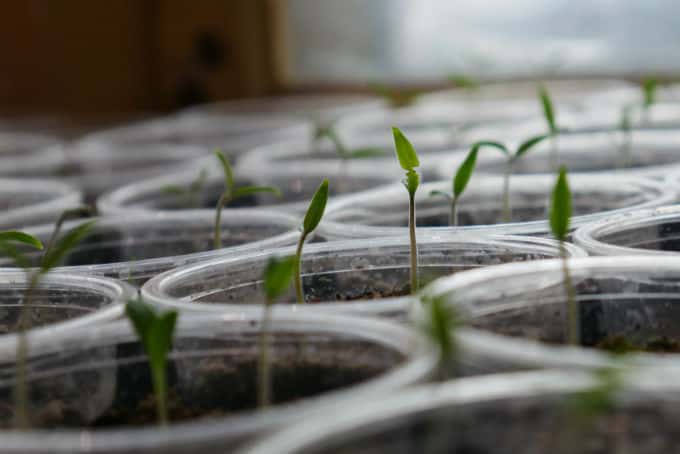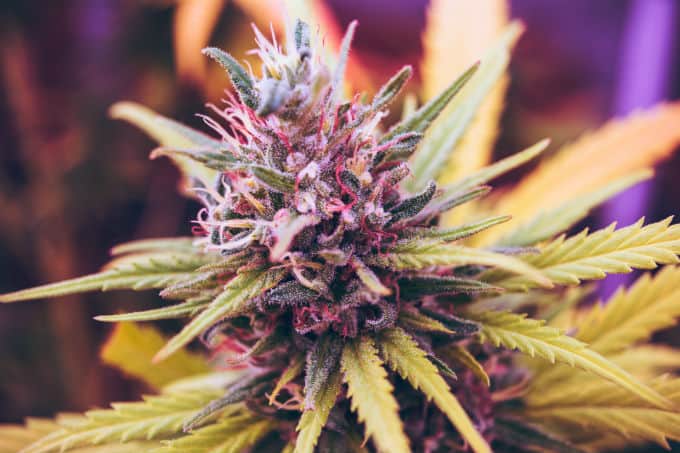
The Beginner’s Guide To Growing Marijuana

1st August 2018 Guides
Growing marijuana can be tricky, especially when it’s your first time around. Mistakes are easy to make and can lead to a disappointing yield in the end. No one wants to have a frustrating first try since it can become discouraging and make the grower wonder why he or she is even trying it to begin with. Never fear: a little research can make a world of difference. Check out this beginner’s grow guide to get started on the right track.
Setting things up

There are several decisions to make before you even start growing marijuana. The first question to ask yourself is: where should I grow marijuana? You need to decide between growing indoors and outdoors.
Indoors vs. outdoors
Growing indoors can be nice because you get to control every aspect of the environment and make it absolutely perfect for your plants. On the other hand, you have to be in control of everything, so there’s nothing to fall back on if you slip up. If you love the detail-oriented nature of it, it’s an excellent choice for you.
Growing outdoors is great for the budget-savvy growers since lots of the elements are already provided for you. It’s a less consistent grow because you can’t predict things like weather or potential pests, but it’s an easier experience for a new grower.
Lighting
If you’re growing indoors, you need to pick your lights carefully. CFLs are most commonly used by newbies since they’re less of an investment. LEDs are more expensive but use less electricity, while MH/HPS lights are also costly but use plenty of energy (and are known for being effective). If you’re unsure, go with CFLs.
Grow medium
You can choose what to grow your plants in beyond just soil (although that is a good option as well). Most beginners decide to go with soil because it’s simple and intuitive. Other options include coco coir, perlite, and vermiculite. Hydroponics is another type of growing style that takes lots of energy, money, and precision, but can lead to monster yields.
Nutrients and pH level
Most likely your soil won’t have added nutrients already, so you’ll need to purchase some. Marijuana plants mainly need nitrogen, potassium, and phosphorus. The ratios vary and are rated with an NKP rating on most purchased fertilizers. This is worth researching in depth.
The pH level is equally important. Make sure you have a testing kit, and if there are signs of nutrient toxicity down the road, remember that it could be caused by a pH imbalance.
Strain
The genetics of your plants is hugely important. Don’t skimp on buying -make sure it’s from a reputable vendor or seed bank-. The strain should be selected based on descriptions and reviews, or advice from fellow growers. Choose a strain known for its ease of growing for beginners.
Germination

The beginning of your grow season starts with germinating the seeds. Get a starter cube to do it and keep it moist and warm (but not too wet or too hot). There are other ways to germinate, such as dropping the seed in a glass of water, or a damp paper towel, but the starter cube is simplest. It takes a few days to one week.
Vegetative Stage
The stage after your plant’s beginning stages of growth is known as the vegetative stage. This is the time your plant is going to do some shockingly fast growing. Tons of foliage should be growing, and its height should be increasing quite a bit. Your goal is to get your plants to grow as much as possible during this time.
Keep the temperature between 70 and 85 degrees Fahrenheit, and only feed your plants nutrients at half strength until their growth becomes very fast (at which point you should feed it 75% strength). They should get 18-24 hours of light per day.
Flowering Stage

The flowering stage is where you really find out how successful your grow season was. The buds are finally going to begin to develop. The light schedule should be changed to 12 hours on and 12 off. Plants need 12 hours of uninterrupted darkness for quite a few days in a row before they visibly begin entering the flowering phase.Outdoor plants go into the flowering phase naturally with the seasons.
If you’re growing non-feminized seeds, identify the males and remove them. Fertilized female plants will spend their energy developing seeds rather than the big, juicy buds that you want. You can tell if its male by the little sacs of pollen, while females have white hairs instead.
Maintain a temperature of between 65 and 80 degrees and keep a close eye on your plants. Change your nutrient regimen accordingly so that it suits the flowering phase.
Harvesting
You know those little white hairs? They will change color when the buds are ready to be harvested. When the majority (half to two-thirds) have darkened, it’s a good time to harvest. Don’t harvest early, but don’t wait too long, or the levels of THC could be affected. Some growers time the harvest according to the type of high they seek, so if that’s interesting to you, then you can look into it further as well.
For a more detailed guide on growing marijuana, you can download this Marijuana Grow Bible. It has some great tips to help even the newest grower grow the best marijuana possible!
No comments:
Post a Comment